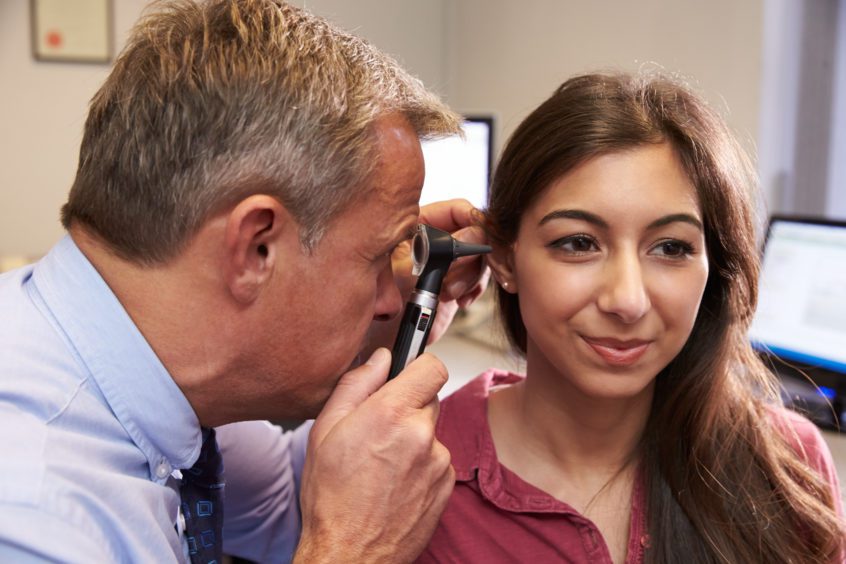If you were having a heart attack, would you try to treat it yourself? Or would you call 911 and go to a hospital? If you had a tooth ache, would you grab a pair of pliers and try to pull the tooth out, or would you schedule an appointment with a dentist?
Most people would call a health care professional and help with your hearing should be no different. Unfortunately, there are a lot of products that say they’ll help you hear better, but may not live up to those claims.
In 2017, the Food and Drug Administration (FDA) passed legislation that would make over-the-counter hearing aids available, but first, the FDA had to approve those items for sale to the consumer. Originally, this legislation was supposed to go into place in 2020, but due to the pandemic and other complications, it did not. Now, it appears this legislation has been delayed again. Though no specific target date has been set for the act, at some point, it may make some hearing aids available to consumers over the counter.
As we wait for more guidance on OTC hearing aids, consumers become more confused. Some see ads for personal sound amplification products (PSAPs), which are not the same as hearing aids, and believe they can treat hearing loss as well as a hearing aid. Others have heard that OTC hearing aids may soon be available, and are waiting for the moment they can buy hearing aids over the counter, presumably at less expense and without help from an audiologist.
What Can an Audiologist Do for Me?
PSAPS and OTC hearing aids, may cost less than traditional hearing aids, but they also don’t have the same features and functions. PSAPs should not be promoted for treating hearing loss. They simply amplify sound. OTCs aren’t fully available yet, but will likely designed for self-fit, mild-to-moderate hearing losses.
So let’s say when OTC hearing aids do become available, you decide to take matters into your own hands and purchase hearing aids without the benefit of an audiologist’s guidance. How will you know what you need to buy and which is the best device for your needs? Do you know the frequency of hearing loss you have? Do you know which device works best for that type of hearing loss? Unless you consult an audiologist, you won’t.
That’s because an audiologist is a health care professional who diagnoses and treats hearing and balance problems. An audiologist has earned an Au.D. (Doctorate in Audiology), or a Ph.D. doctoral degree from an accredited university graduate program.
As part of their four-year doctoral training, audiologists spend a final year completing an externship experience supervised by a licensed audiologist. The externship provides practical, hands-on, advanced experience.
Following graduation from an accredited program, audiologists can diagnose, manage and treat hearing or balance problems for individuals from birth through adulthood including:
- Test hearing and balance.
- Recommend, service, and adjust hearing aids
- Recommend and provide assistive listening devices (products to enhance telephone conversations, television viewing, etc.).
- Provide tinnitus assessment and management.
- Provide education regarding the effects of noise on hearing and prevention of hearing loss.
- Deliver counseling and aural rehabilitation (counseling, education, auditory training/exercises).
- Audiologists can make medical referrals to a physician when appropriate for issues such as ear pain, drainage from the ear, sudden hearing loss, cochlear implantation, etc.
When an audiologist examines your outer ear with an otoscope or video otoscope, they can observe any damage caused by the use of cotton applicators (“Q-tips”), trauma, or chronic infection. An audiologist can also observe the condition of the ear drum and determine whether the ear canal may have a buildup of earwax causing a hearing loss.
After considering a patient’s history and performing a visual inspection of the outer ear, the audiologist will perform an audiological evaluation composed of a series of tests. These tests may include but are not limited to:
- Tympanometry to assess the status of the middle ear.
- Pure tone thresholds by air conduction and often by bone conduction to determine the degree and type of hearing loss.
- Tests of speech threshold and speech recognition to assess comprehension of complex signals.
- Special tests of auditory function, such as otoacoustic emissions, brainstem auditory evoked response (BAER), or balance testing.
By the way, the OTC hearing aid legislation recommends consumers have an examination from an audiologist before purchasing hearing aids. This ensures the consumer has a health care professional guide their choices and options for hearing technology, and that there isn’t an underlying issue that might require medical attention.
Bottom line, hearing aid technology is actually more sophisticated and affordable than ever. If you think you have a hearing loss, see a doctoral-level audiologist who can properly evaluate your hearing and make appropriate recommendations.



